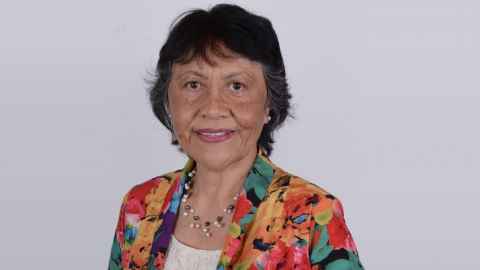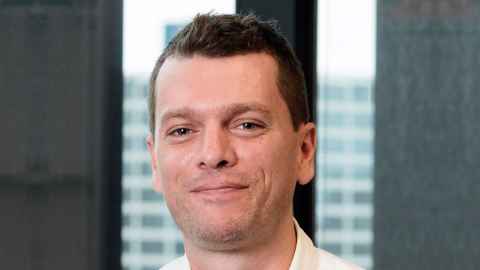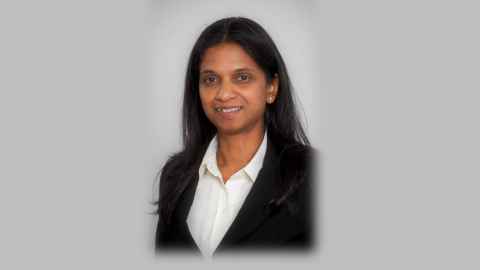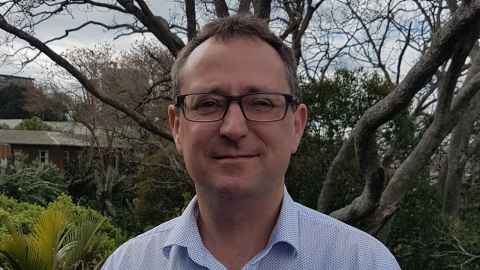COMPASS seminars 2021
Explore and watch our seminars from 2021
Tauhi Lelei: Caring is everything, not just anything! If so, then what?

Ofa Dewes
An invisible workforce of family carers contribute significantly to the quality of life and death of their aiga and whānau. With the added responsibility comes considerable burden. Pacific family carers in New Zealand are among those at particular risk due to the additional socioeconomic pressures they face. This is expected to challenge communities and service delivery. However, little is known about how best to ameliorate the challenges they face and how their needs and access to services may be satisfactorily met.
My talanoa with you will focus on Pacific caregiving experiences, including barriers and enablers to optimising the aiga carer role. I will also share the digital stories and music video created in collaboration’ with family carers, as well as our contribution to the development of the Ministry of Social Development’s Mahi Aroha Carers’ Strategy Action Plan 2019–2023.
The topic is necessary to share openly because of the support it gives others in similar situations, and acute need for evidence-based information to ensure health and social services meet the needs of the carers and their aiga.
The research with Pacific family carers was made possible with funding from the National Science Challenge for Ageing Well.
Ofa Dewes (Fiji-born of Rotuman/Tongan/Tuvaluan/Tokelauan ethnicity with affiliation to Ngāti Porou) is Associate Investigator of the Maurice Wilkins Centre for Molecular Biodiscovery and Co-Investigator on the COMPASS study researching the impact of chronic health conditions on the aiga (family) and whānau across the life-course.
Ofa holds an MBA from Southern Cross University and has worked in the public, private, and international sectors. Her commitment to improving Pacific Peoples' health and wellbeing led her to completing a doctoral degree in 2010 at the University of Auckland. She is now putting her qualifications and indigenous knowledge to work in service to the community.
Getting the Crowd to Care: Marketing illness through health-related crowdfunding in Aotearoa New Zealand

Tom Baker
Campaigns for personal health expenses make up the largest and fastest-growing segment of donation-based crowdfunding. Set against the backdrop of retrenchment and disinvestment in public healthcare systems across the global North, health-related crowdfunding is a way to navigate increasingly marketised systems of social reproduction.
Despite high profile success stories, campaigns vary significantly in their ability to capture the hearts, and ultimately wallets, of donors. While existing analyses of online campaign pages offer some insight into the marketing of healthcare needs, far less is known about practices and experiences of crowdfunding platform users, including campaigners. Bringing literature on crowdfunding together with accounts of the marketisation of care, this presentation asks: how do campaigners work to secure crowdfunded healthcare?
Through the accounts of 15 people campaigning on behalf of family or friends in Aotearoa New Zealand, we show how attempts to appeal to donors depend on campaigners’ abilities to ‘market’ illness and need in ways that resonate with the crowd.
We have two main foci. First, we examine the responsibility and responsibilisation of campaigners to engage and perform accountability to crowdfunders. Second, we show how campaigners mobilise recipients’ traits of deservingness and other culturally favoured personal qualities to appeal to the crowd's perceived predilections.
In sum, the presentation demonstrates how the use of crowdfunding is both necessitated by the marketisation of healthcare while simultaneously exerting its own form of market discipline. The presentation reports on a paper (co-authored with Caitlin Neuwelt-Kearns, Octavia Calder-Dawe, Ann E. Bartos and Susan Wardell) published in Environment and Planning A: Economy and Space, doi:10.1177/0308518X211009535.
Tom Baker is a Senior Lecturer in Human Geography at the University of Auckland. Grounded in the disciplines of geography and political science, his research examines the politics and practice of policy-making and the governance of socio-economic marginality. In recent years, his projects have focused on the ways collective problems are being addressed through the use of socially-minded market 'solutions'. He is an associate editor of the International Journal of Housing Policy.
An exploration of ways to improve news coverage of complex marine ecosystem science through journalist-scientist working relations

Komathi Kolandai-Matchett
In collaboration with: Maria Armoudian, Simon Thrush, Jenny Hillman, Luitgard Schwendenmann, Julia Jakobsson, Tom Haggitt, Caitlin O'Hara Blain, Gavin Lear.
The marine environment is remote, ecologically complex, and subject to multiple and cumulative anthropogenic threats. Scientists face unique challenges in explaining marine ecosystem science, and journalists face the extraordinary task of reporting an out of sight environment. However, scholars have hardly examined the experiences and views of these two professional groups within marine news contexts.
In this study, we used expert sampling and online surveys to understand the perspectives of journalists and scientists about their working relationships, ways to connect, appropriate news content, and ways to report ecosystem complexities.
We found that although some frustrations continue to divide the two professions, both shared a common goal of impactful news stories and were receptive to alternate ways for reporting marine ecosystem complexities. Both preferred direct contact with each other over indirect communications such as press releases and science news platforms. Both groups generally agreed on what to include in marine news, but scientists favoured a collaborative approach to news content decision-making more strongly than journalists.
We provide recommendations for supporting stronger journalist-scientist working relations and improving news coverage. Learnings may be relevant to other complex science fields that might benefit from enhanced journalist-scientist interactions.
Komathi Kolandai-Matchett is a Research Fellow at COMPASS Research Centre and the Public Policy Institute. She is a multidisciplinary researcher with a specialisation in environmental science communication.
Impact of chronic health conditions on family and whānau across the lifecourse

Barry Milne
Chronic diseases such as cancer, cardiovascular disease, and diabetes have a direct effect on the middle and later life-course, but the indirect effect of chronic diseases on whānau has been less well-studied, and is likely to have impacts across the entire lifecourse.
This research investigates the impact of chronic conditions on the wider family and whānau at different life stages – from the youngest young to the oldest old. The research involves a large scale quantitative investigation of impacts on family and whānau across a range of areas of functioning.
We also undertake an in-depth qualitative study of Tokelauan families to assess the family, household, and community strengths that allow people to thrive despite the challenges of living in families with chronic disease.
Barry Milne is Director of COMPASS Research Centre. He has a Masters degree in psychology from the University of Otago and a PhD in Psychiatric Epidemiology from Kings College London. His main interests are in lifecourse research, survey research, and the use of administrative data to answer policy and research questions.